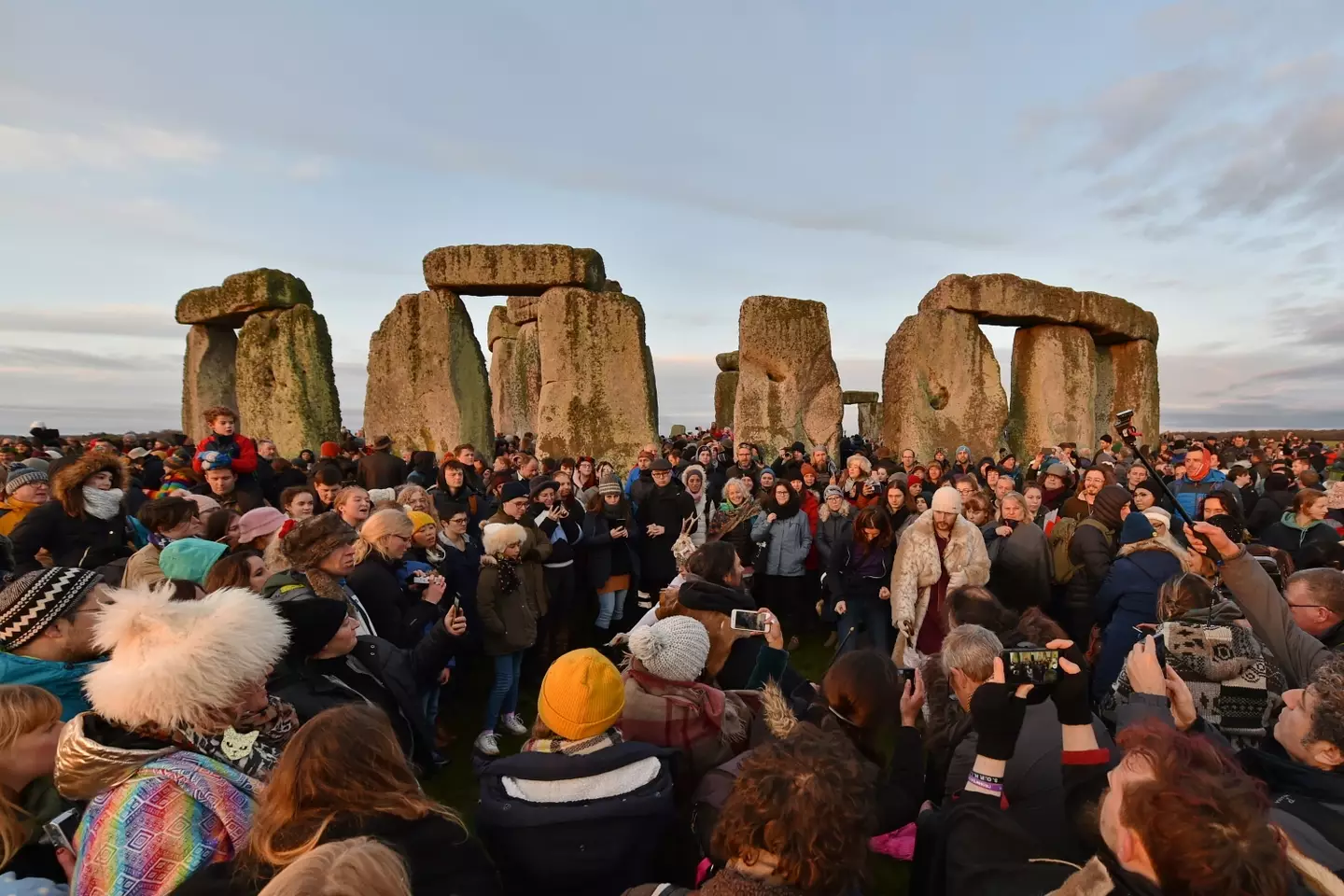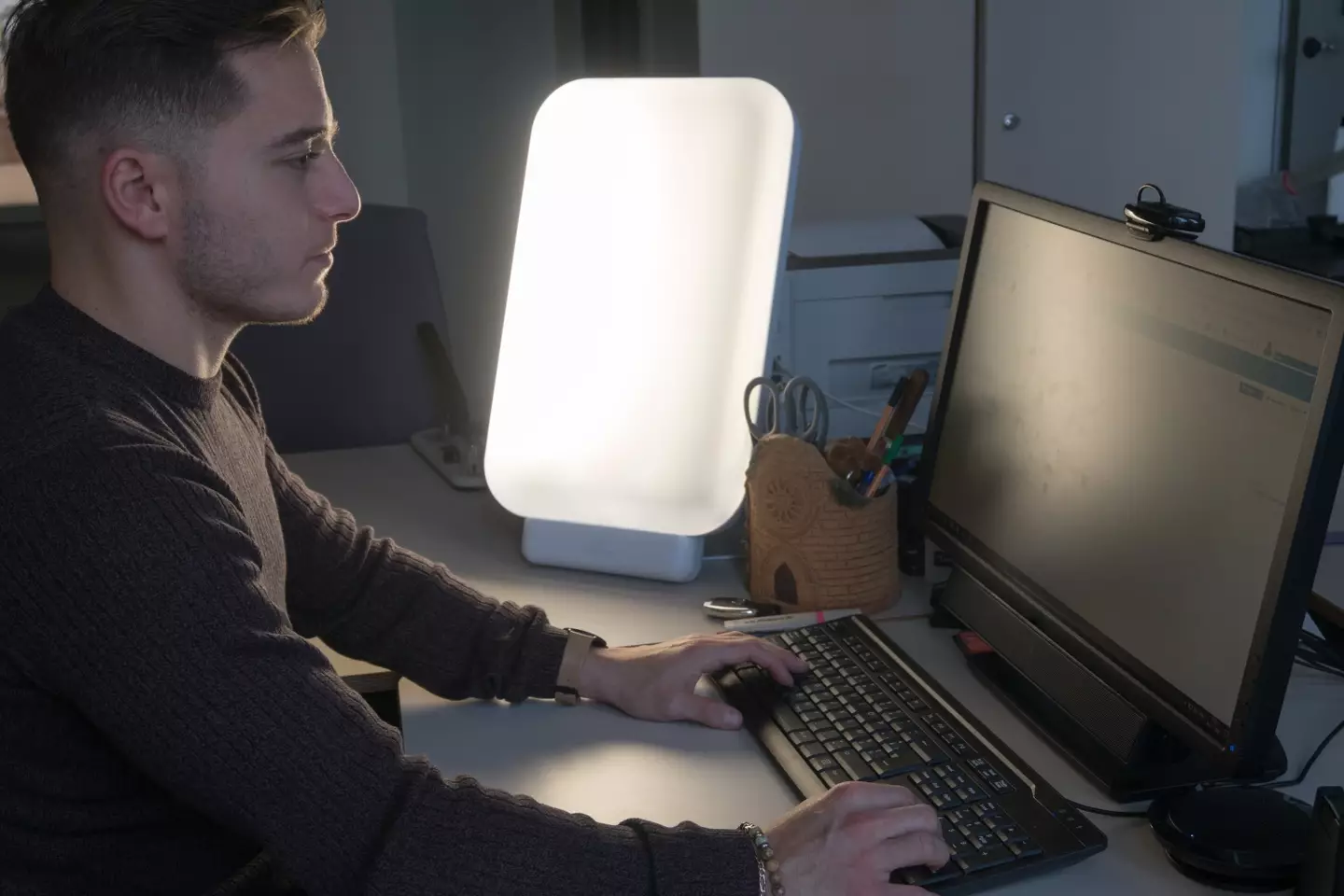How you react to this probably says a lot about you as a person - it’s the shortest day of the year.
And while you might be the optimist who celebrates because it means it’s only uphill from here, you could however be grumbling about how depressing it is and even dreading it.
Emphasis on that low feeling as unfortunately, a lot of us really might be feeling more down that any other day of the year.
Today (21 December) marks winter solstice in the UK and no, it doesn’t mean you need to start panicking about changing the clocks, it’s not the shortest day in that sense.
Instead, it’s when we get the shortest period of daylight between sunrise and sunset and therefore, the longest night of the year too. Today, the sunset is due to take place at just 3:54 in the afternoon.

Crowds often gather at Stonehenge to celebrate the Winter Solstice (Rufus Cox/Getty Images)
Impact on mental health
This time of year in general can be a challenging period for those struggling with their mental health. As well as the colder weather, the reduced sunlight can lead to a decrease in serotonin production which plays a crucial role in regulating mood.
For many of us, it may be a difficult time due to seasonal affective disorder (SAD).
This is a type of depression that comes and goes in a seasonal pattern, typically kicking in during the winter.
NHS says the exact cause of it isn’t fully understood but it’s often linked to ‘reduced exposure to sunlight during the shorter autumn and winter days’. Remember how I said today we get the least amount of sunlight?
The main theory is that a lack of sunlight may stop a part of the brain called the hypothalamus from working properly, which might affect the production of melatonin and serotonin as well as the body’s internal clock.

Light boxes are often used by those with SAD (Getty Stock Image)
Symptoms of SAD
Those suffering from SAD may experience a persistent low mood, a loss of pleasure or interest in normal everyday activities and irritability.
They may also have feelings of despair, guilt and worthlessness as well as being lethargic during the day.
There’s also the chance of sleeping for longer than normal and finding it particularly hard to get up in the morning.
Other symptoms also include craving carbs and gaining weight, difficulty concentrating and having a decreased sex drive.
Treatment and help
If you think you might have SAD and are struggling to cope, you should consider seeing a GP.
The NHS advises a range of treatments for SAD and this includes talking therapies and antidepressant medicine.
There is also the opportunity of light therapy where you have a special lamp in your room or on your desk to simulate exposure to sunlight.
And importantly, there are lifestyle measures and things you can do to help, like trying to get as much natural sunlight as possible.
So lads, try and get outside today if you can, sit near windows when you’re inside and take it easy.
If you're experiencing distressing thoughts and feelings, the Campaign Against Living Miserably (CALM) is there to support you. They're open from 5pm–midnight, 365 days a year. Their national number is 0800 58 58 58 and they also have a webchat service if you're not comfortable talking on the phone.




















 English (US) ·
English (US) ·